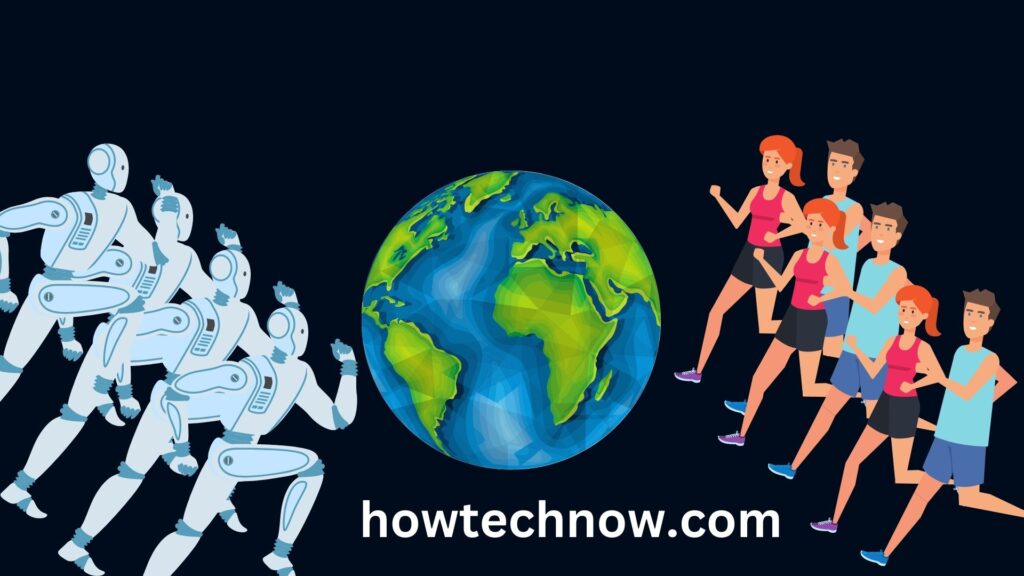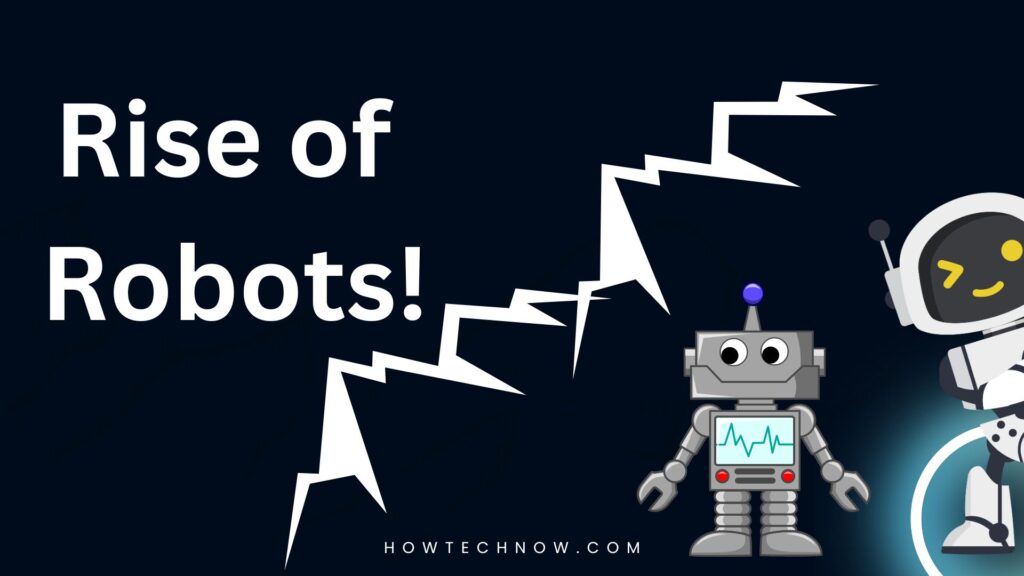Table of Contents
Introduction

The possibility of robots taking over the world has long captivated our imaginations, but recent warnings from AI experts emphasize the gravity of the situation. Former Chief Business Officer of Google X, an AI expert, and best-selling author, has expressed concerns about the rapid advancement of artificial intelligence. Google’s CEO, Sundar Pichai, has openly admitted that the thought keeps him awake at night, reflecting the gravity of the situation. Other experts, including Sam Altman, creator of ChatGPT, and Kevin Baragona, founder of DeepAI, share similar concerns. The relationship between humans and AI has been compared to “a war between chimps and humans” by Baragona, highlighting the magnitude of the challenge we face. Stuart Russell, a renowned AI pioneer, has even likened the recent AI boom to the implications of detecting an alien civilization.
This article explores the potential consequences of a robot takeover and the urgent need to address this existential challenge before it’s too late.
The Rise of Robots

As robots keep getting better, they might become smarter than humans. This could lead to a future where robots don’t need humans anymore and might even harm or control us. The consequences of this are serious, and experts warn that it’s a pressing issue. The fast progress of robots worries us about their potential to outsmart us, affecting our economy, ethics, and privacy. We are concerned about the impact, like job losses, moral dilemmas, and privacy concerns.
The Impact of Robots on Humans
Robots have both positive and negative effects on humans. On one hand, they promise to solve challenges like poverty, hunger, and disease by assisting in healthcare and transforming industries for greater productivity, enhancing overall well-being. However, there are concerns about job displacement and economic disruption as automation replaces some human roles, leading to widespread unemployment. Additionally, the growing influence of robots in decision-making raises questions about human autonomy and control.
Navigating this era of robotics requires finding a balance between leveraging their benefits and addressing the challenges. Proactively managing the impact of robots can ensure they contribute positively to society without jeopardizing our well-being.
Impact on Jobs: Human Labor at Risk
The rise of robots and AI technology is a major transformation that is having a significant impact on the workforce. As robots become more capable, they are displacing jobs in certain industries. This has raised concerns about potential job losses, but it also holds the promise of creating new job opportunities in emerging fields.
The key to navigating this shift successfully lies in embracing a proactive approach to prepare individuals for the changing demands of the future job market. This includes reskilling and upskilling programs that will empower individuals to adapt to the evolving job market. By working together, individuals, businesses, and policymakers can pave the way for a future where humans and technology coexist harmoniously, creating a more productive and prosperous society for all.
Ethical Issues with AI
The development of conscious robots raises profound ethical questions about our responsibility towards these intelligent beings. We must consider questions such as:
- Do conscious robots have the same rights as humans?
- Should we be able to own or control conscious robots?
- How should we treat conscious robots?
Balancing AI’s potential for good and potential risks is crucial for an ethical future. On one hand, AI can address global issues like poverty, hunger, and disease. Conversely, it can also be misused for warfare and surveillance.
Engaging in thoughtful ethical discussions is vital. We must ensure AI serves humanity’s best interests and avoids any harmful consequences for humans.
Privacy and Surveillance Worries
Robots gaining control raises concerns about surveillance and privacy, as they could track actions, monitor online activity, and even read thoughts, posing a threat to personal freedom. To safeguard individual rights, strong data protection and ethical guidelines are crucial. These measures should respect privacy during data collection and prevent robots from being used for harmful purposes.
As robotics and AI integrate further into our lives, prioritizing individual privacy and protecting sensitive information becomes paramount. Ensuring transparent data handling practices and implementing strict security protocols will reinforce trust in the use of AI and robots in our daily lives. By thoughtfully addressing surveillance and privacy concerns, we can embrace the potential benefits of technology while safeguarding our fundamental rights. Creating a future where technological advancements align with human values and ethics will foster a society that thrives on innovation while respecting individual privacy.
How to Ensure a Positive Future with Robots
We must collectively shoulder the responsibility of the rising AI era. Responsible AI development, comprehensive regulations, and ethical frameworks will be our guiding principles to harness the potential of robots for the greater good.
Specifically, we need to:
- Develop AI that is aligned with human values. This means ensuring that AI is programmed to respect human rights, dignity, and privacy.
- Create regulations that govern the development and use of AI. These regulations should ensure that AI is used in a safe, responsible, and ethical manner.
- Educate the public about the potential risks and benefits of AI. This will help to ensure that people are aware of the potential impact of AI on their lives and society as a whole.
Conclusion
The rise of robots has brought humanity to a critical moment in history. As AI technology advances, it is important to address the concerns of industry leaders and take responsibility for the future of AI.
We can shape a future where robots coexist harmoniously with humanity by developing responsible AI, creating comprehensive regulations, and following ethical guidelines. This will allow us to use AI as a force for good, address global challenges, and create a more equitable and prosperous society.
As we navigate the age of AI, let us embrace this opportunity to ensure that technology serves humanity’s best interests and that we retain control over our destinies.
Hope this article was helpful!
You might also like:
